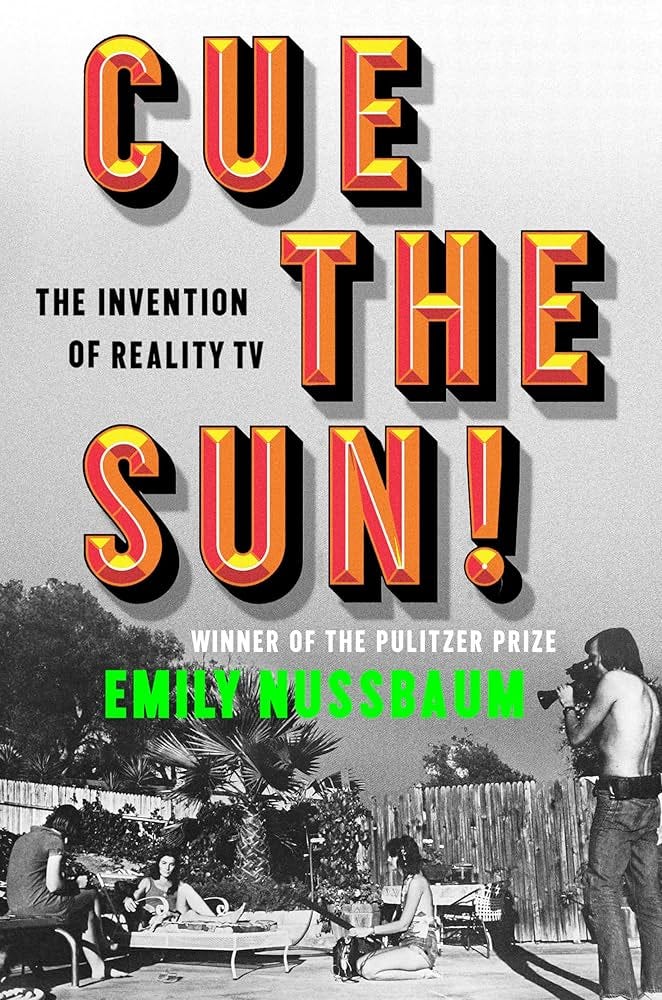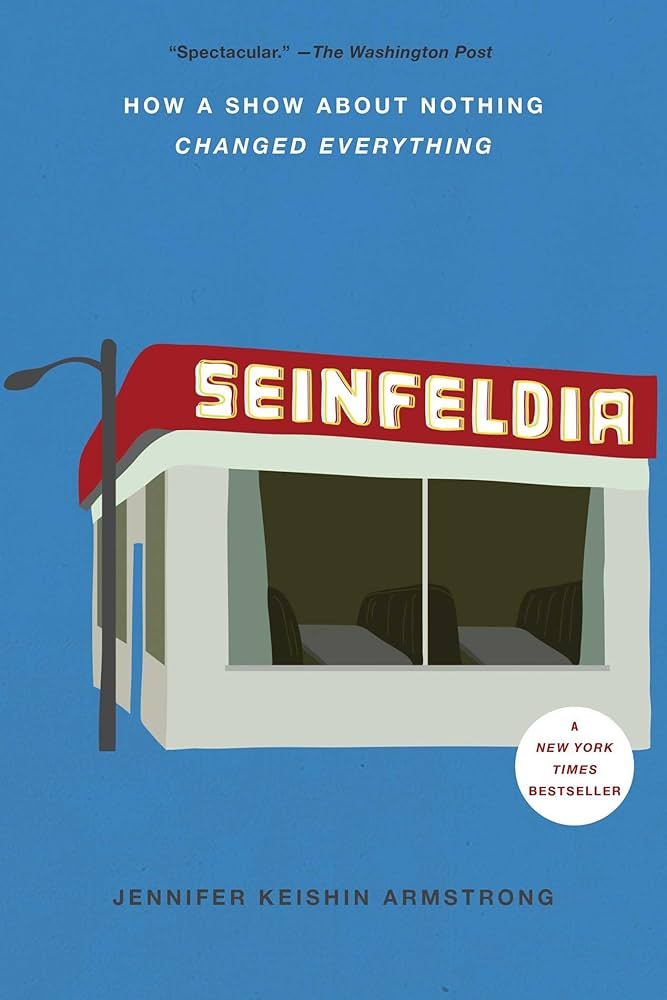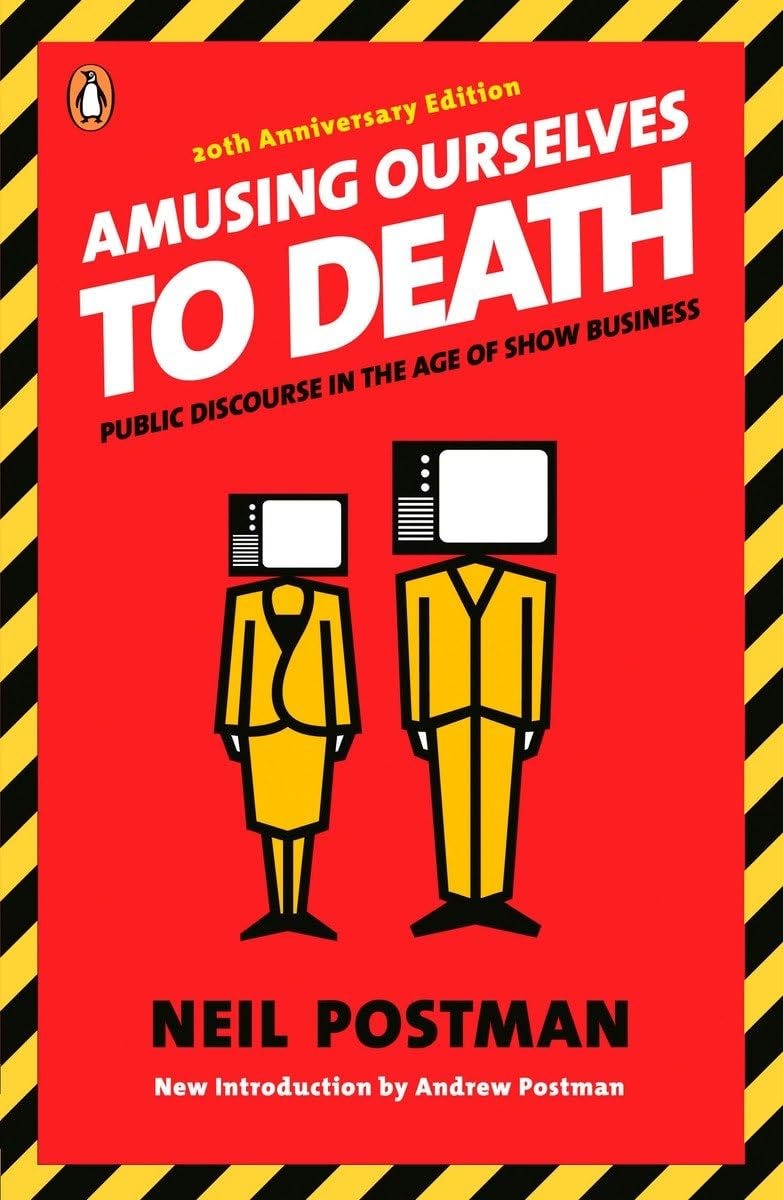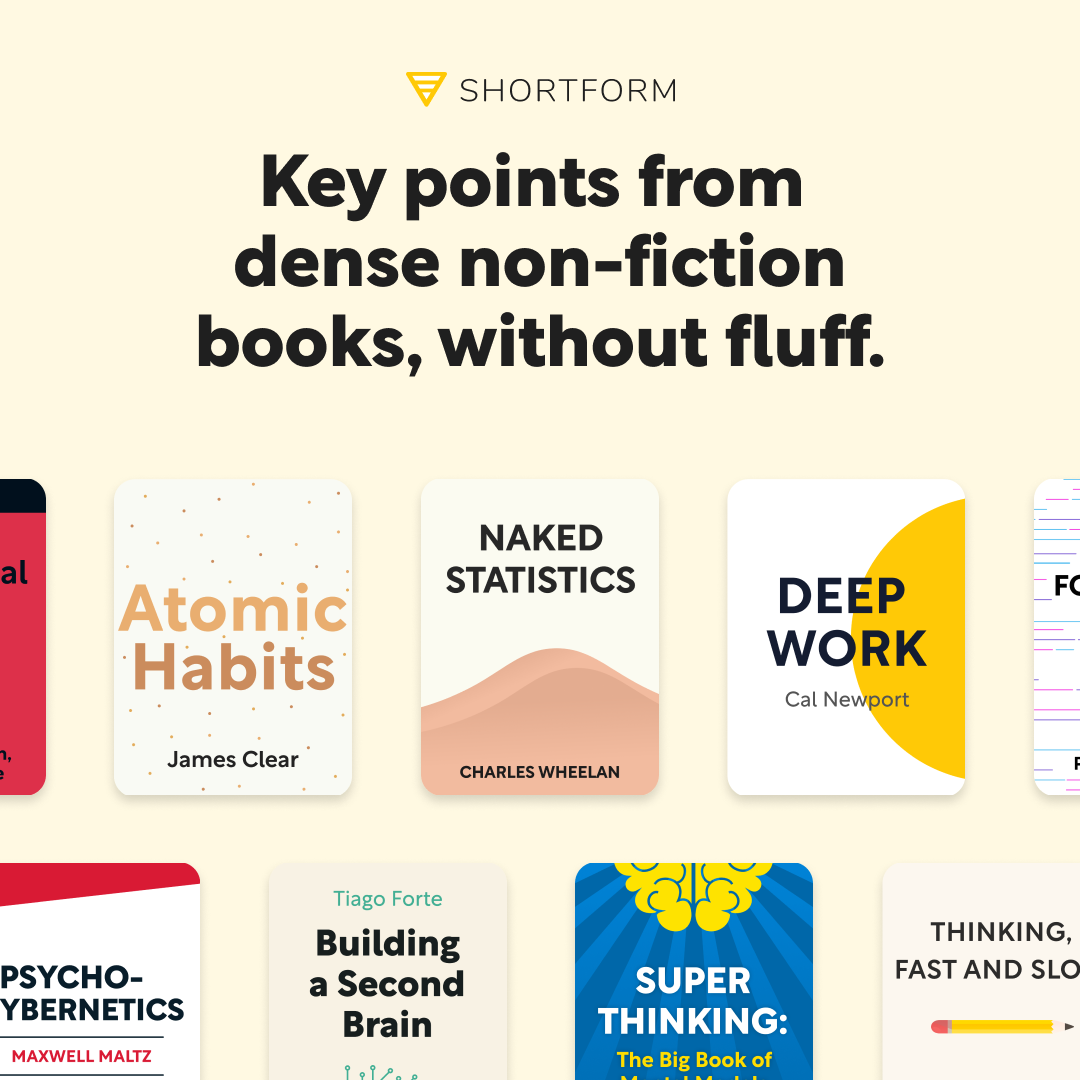What to Read Next: 3 Books About TV's Impact on American Culture
Issue #356, featuring Emily Nussbaum, Neil Postman, and Jennifer Armstrong
Today’s sponsor is Shortform, the non-fiction book summary platform you didn’t know you needed, offering the world’s best guides to more than 1,000 titles. Learn more, including how you can get 20% off, at the end of this post.
Television has shaped American culture in profound and often surprising ways, influencing everything from the way we talk to how we perceive reality itself—not to mention how we vote.
In this issue, I’m diving into three books that unpack TV’s lasting impact: a thoughtful (and fun) history of reality TV, a deep dive into the lasting cultural phenomenon of Seinfeld, and a razor-sharp critique of TV’s role in shaping public discourse.
Whether you’re a TV connoisseur or just curious about its cultural footprint, these reads offer insights that are as entertaining as they are thought-provoking.
Cue the Sun: The Invention of Reality TV by Emily Nussbaum
Emily Nussbaum’s Cue the Sun gives readers a vibrant exploration of how reality television evolved from fringe curiosity to cultural juggernaut, reshaping our understanding of entertainment—and the type of people who consume it. Tracing the genre’s roots from early forerunners like Cops and America’s Funniest Home Videos (and even earlier offerings) to today’s glossy spectacles, Nussbaum balances sharp analysis with an infectious attraction to TV’s messiest and most fascinating corner.
For me, the book really clicked when it dug into shows I’ve watched and enjoyed over the years. Nussbaum draws a compelling throughline from the earliest seasons of long-lasting hits like Survivor and The Bachelor to today’s slick, high-production titles like Selling Sunset (our household’s favorite these days).
Shows like these, she argues, have transformed from supposedly unscripted windows into “real life” to something more akin to scripted dramas that simply feature real people. Nussbaum perfectly captures how these series blur the line between authenticity and deception, creating a kind of hybrid storytelling that’s as addictive as it is revealing.
If you’re a fan of reality TV, or simply curious about why it’s such a cultural force, Cue the Sun is a history book that’s also just plain fun. In the comments, I’d love to hear about your guilty pleasure shows!
Seinfeldia: How a Show About Nothing Changed Everything by Jennifer Armstrong
Jennifer Armstrong’s Seinfeldia beautifully captures how the “show about nothing,” became a cultural touchstone with a legacy far outlasting its nine-season run. By zeroing in on the relatable absurdities of everyday life—soup orders, parking spaces, double dipping, awkward dancing—the show redefined what comedy could be, offering a mirror to the petty grievances that we all yap about, all the time.
Armstrong convincingly argues that Seinfeld’s lexicon (“yada yada yada,” “no soup for you!”) and its ethos of hyper-specific, observational humor laid the groundwork for today’s meme-driven culture and sense of humor.
Reading Seinfeldia brought me right back to watching the show with my dad in the late ‘90s (and re-runs for years afterward). This might sound ridiculous but Jerry Seinfeld’s creation almost feels Dickensian when I re-watch it nowadays—both artists were utterly rooted in a specific time/place and yet offer timeless wit; both feature caricatures of “good” and “bad” characters; both are marvelously relatable in their wry reflections on human nature. The real difference is that Dickens used humor as a counterbalance to his serious themes; Seinfeld, on the other hand, is all laughs.
For fans of Seinfeld or anyone fascinated by how pop culture shapes (and reflects) our lives, Seinfeldia is a perfect companion.
Amusing Ourselves to Death: Public Discourse in the Age of Show Business by Neil Postman
As a sharp critique of television (and visual media in general), Amusing Ourselves to Death remains as relevant today as when it was first published in 1985. Postman argues that as our society increasingly prioritizes entertainment, we risk losing the depth and nuance that are so critical to meaningful public discourse.
Reading this book in 2024, it’s clear that Postman’s worries have come to fruition.
Though his examples predate the internet, Postman’s observations feel uncannily prescient. Reading this while doom-scrolling social media (or binge-watching reality TV) invites reflection on just how much of our daily media diet is designed not to inform, but simply to distract and amuse.
It’s a quick read and one I return to every handful of years to remind myself to reflect on my media habits. Postman sometimes comes off like a cranky old man, but, frankly, so do I more and more with each passing year—especially when it comes to social media.
If you’ve ever wondered whether our endless stream of content is enhancing our lives or just numbing them, Amusing Ourselves to Death offers clarity and insight that’s hard to ignore.
Shortform: The World’s Best Guides to 1000+ Non-Fiction Books
Today’s sponsor is Shortform, a nonfiction book summary platform that distills each book's core ideas with chapter breakdowns, analysis, commentary, and even counterpoints from other sources, allowing you to deepen your understanding. It’s like Blinkist, but much better.
It can be a great way to break down a complicated book or to sample something that you’ve heard about and want to see if you’d be interested in.
My readers get a free trial and 20% discount on the annual subscription.
Be good to each other. And thanks for reading.
-Jeremy






Four Arguments for the Elimination of Television by Jerry Mander has been on my get to list for awhile. But then, I'd probably be convinced that I need to throw what Harlan Ellison has called The Glass Teat into the trash once and for all.
Postman is always worth a read.
My partner and I have an eight-hour drive coming up for Thanksgiving. Sounds like Seinfeldia could be a good candidate for joint audio book listening on the trip! Thanks as always for the interesting recommendations.